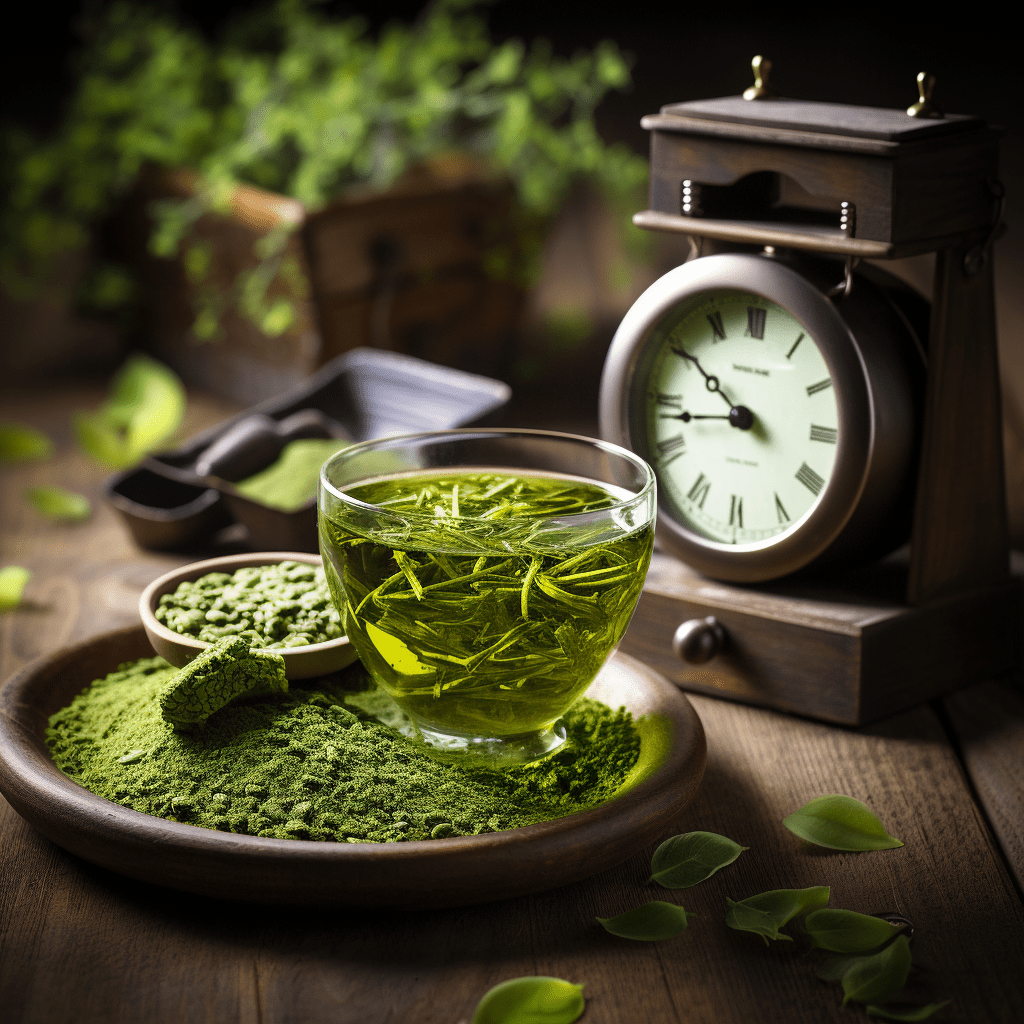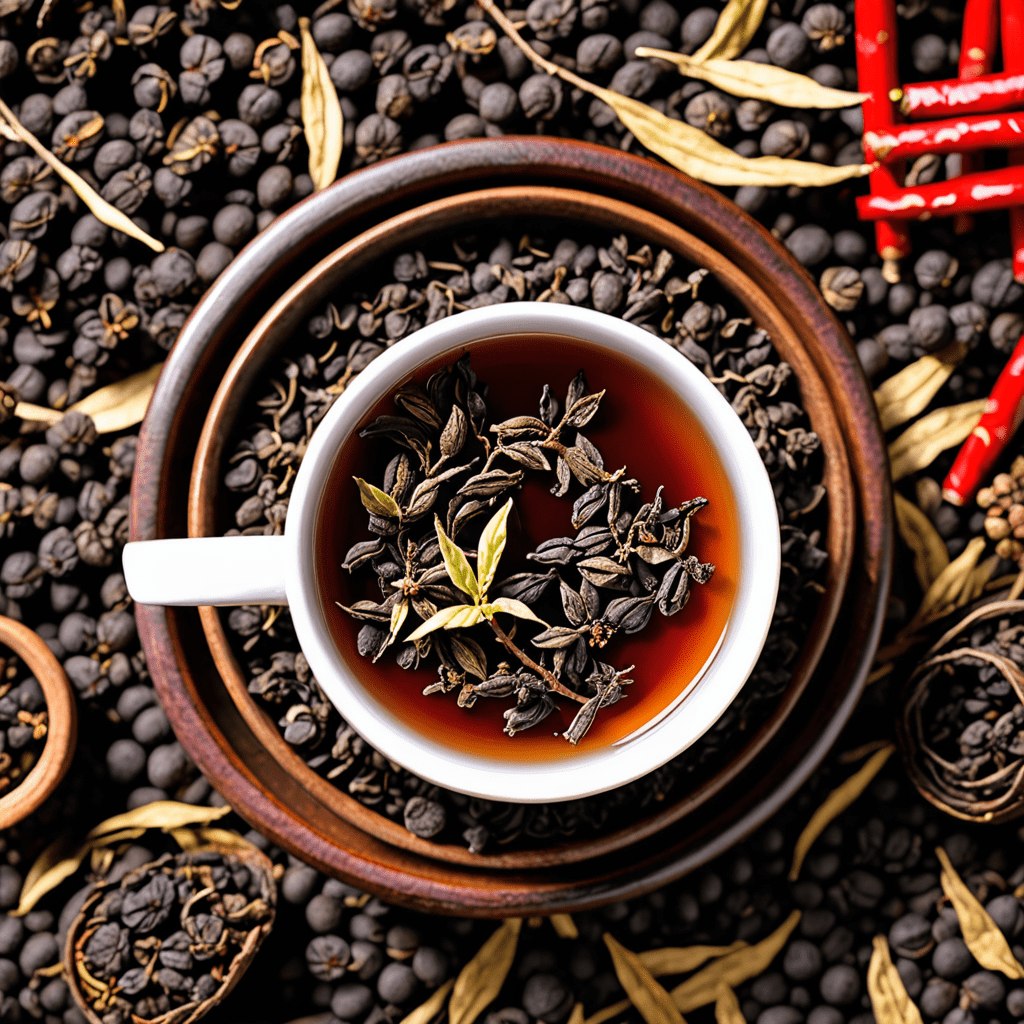
The Best Time to Drink Green Tea: A Guide
Green tea is known for its numerous health benefits, from boosting metabolism to providing antioxidants. But when is the best time to consume this beloved beverage? In this article, we will explore the optimal times to enjoy green tea and why timing may play a role in maximizing its potential benefits.
1. Morning: A Refreshing Start to the Day
Starting your day with a cup of green tea can invigorate your senses and provide a gentle energy boost. The moderate caffeine content in green tea can provide a milder alternative to coffee, avoiding the jitters and crashes associated with higher doses of caffeine. Additionally, the natural antioxidants found in green tea can help kickstart your metabolism, aiding in weight management and promoting overall well-being.
2. Before and After Meals: An Aid to Digestion
Drinking green tea before or after meals can aid in digestion. The catechins present in green tea can help break down food, reducing the chances of bloating or indigestion. Additionally, sipping on green tea after a meal can help control blood sugar levels and prevent an insulin spike, making it an excellent choice for those with diabetes or insulin resistance.
3. Afternoon: A Midday Pick-Me-Up
Many people experience a mid-afternoon slump, feeling tired or lacking focus. Green tea can provide a natural boost of energy without the crash associated with sugary drinks or excessive caffeine consumption. Its theanine content promotes alertness while also maintaining a state of relaxation, helping you power through the rest of your day.
4. Pre-Workout: Enhance Performance and Recovery
If you’re looking to enhance your workout routine, consider incorporating green tea into your pre-workout routine. The combination of caffeine and antioxidants in green tea can improve endurance, increase fat oxidation, and elevate metabolism during exercise. These benefits can assist in achieving your fitness goals while also reducing exercise-induced oxidative stress.
5. Evening: A Soothing Beverage Before Bedtime
Though green tea does contain caffeine, opting for a decaffeinated or low-caffeine option in the evening can make it a suitable bedtime beverage. Green tea’s relaxing properties, such as its theanine content, can promote a calm and peaceful state, aiding in sleep quality. If you still desire the ritual of savoring a warm cup of tea before bed, green tea can be an excellent choice.
Frequently Asked Questions (FAQ)
Q: Can I drink green tea on an empty stomach?
A: While it is generally safe to drink green tea on an empty stomach, some individuals may experience mild stomach discomfort. It is advisable to listen to your body and adjust accordingly. If you find that green tea upsets your stomach, try consuming it with a meal instead.
Q: How many cups of green tea should I drink per day?
A: The recommended intake of green tea varies depending on factors such as age, health conditions, and individual tolerance. However, consuming 2-3 cups of green tea per day is generally considered safe and provides a good balance of its potential health benefits.
Q: Can I drink green tea before sleep if it contains caffeine?
A: If you are sensitive to caffeine, it is best to opt for decaffeinated green tea before bed. Alternatively, you can select green tea varieties with lower caffeine content, such as sencha or hojicha. Experimenting with different options can help you find the best fit for your sleep routine.
Q: Are there any side effects of drinking green tea?
A: While green tea is generally safe for consumption, excessive intake or sensitivity to its components may lead to side effects such as insomnia, irritability, or gastrointestinal issues. It is crucial to drink green tea in moderation and be aware of any adverse reactions your body may have.
Q: Can I drink green tea while pregnant or breastfeeding?
A: It is recommended to consult with a healthcare professional before consuming green tea during pregnancy or breastfeeding. Green tea naturally contains caffeine, which should be limited during these periods. Additionally, certain compounds in green tea may interfere with nutrient absorption or have other effects on the developing fetus or infant.
Q: Can I drink green tea if I have certain medical conditions or take medications?
A: If you have existing medical conditions or are taking medications, it is advisable to consult with a healthcare professional before adding green tea to your routine. This step can ensure that green tea does not interfere with any medications you are taking or exacerbate any pre-existing health conditions.
As with any dietary change, it is important to listen to your body and adjust accordingly. Green tea can be a delightful and healthful addition to your daily routine. By being mindful of the timing and quantity you consume, you can make the most out of this ancient beverage’s potential benefits. Cheers to a refreshing cup of green tea!

